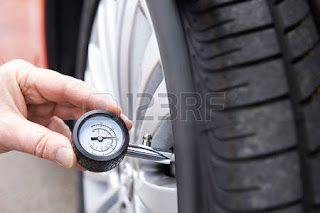As we enter monsoon season, here are some safety tips to remember.
- Flashlights - These are key "to haves" for both your residence and automobiles. The best flashlight to have is an LED. They are brighter and last longer. A good place to get a package of 3 or 4 would be at Costco, Home Depot or Lowes. You can purchase a package containing 3-4 LED flashlights for about $20.00. Keep one in your car and the remaining flashlights in your residence.
- Batteries - Whether you have batteries or not, it's time to get new ones. The best type of batteries to get are Alkalines. It does not matter where you get them, but I like either Duracell or Eveready. Buy just enough to use in your flashlights, not a mega package. This would also be a good time to replace your smoke detector batteries.
- Radio - I suggest getting a small weather/emergency radio that runs on batteries. This is so you can stay on top of any weather or other emergencies, incase the power is off in your area.
- Food and Water - It's always good to have some caned food/soup and bottled water in your home just incase of loss of power or if you are unable to leave your home during a bad storm. Make sure you also have a manual can opener to open those cans of food.
- Candles and matches - In case of loss of power for and extended period of time, a small supply of candles and matches can come in handy.
- Refrigerator - Remember, things in your refrigerator can stay cold and or frozen for up to 24 hours. Just try to minimize the number of times you open and close the door.
- Driving - If you don't have to, then don't. Driving in monsoon weather is very dangerous. If you are stuck in a dust storm, pull off and over to the far right of the roadway, place your car in park, turn off your lights, set your parking brake, keep your foot off the brake pedal and DO NOT put on your emergency lights. Once it is safe to drive, then proceed carefully.
- Outside objects - Secure any outside objects you might have. This includes, but is not limited to, lawn chairs, patio umbrellas, small plants, pool supplies and hanging objects like bells, flags and plants.





